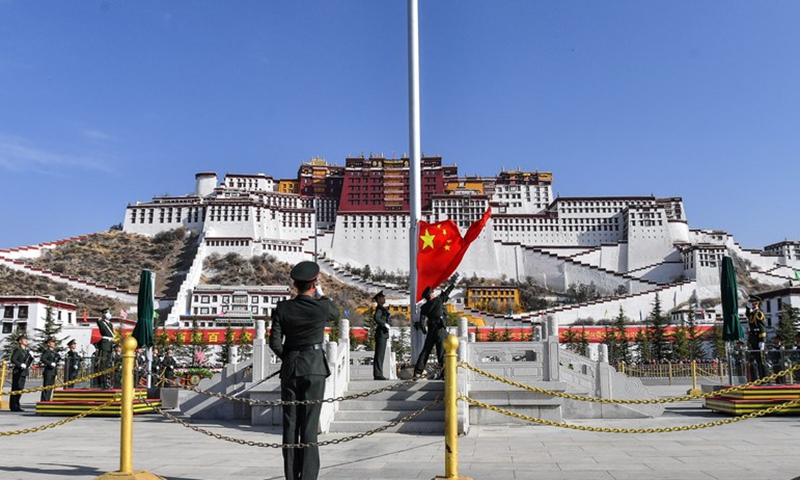
A flag-raising ceremony is held to celebrate the Serfs' Emancipation Day at the square in front of the Potala Palace in Lhasa, capital of southwest China's Tibet Autonomous Region, March 28, 2021.(Photo: Xinhua)
Tibet Autonomous Region in southwest China on Sunday opened its first memorial hall on the historic movement to end serfdom 62 years ago.
A long line of visitors was seen before the memorial hall, located in the regional capital of Lhasa, on Sunday morning.
On March 28, 1959, the Communist Party of China (CPC) led the people in Tibet to launch the democratic reform, abolishing Tibet's feudal serfdom under theocracy.
In 2009, the regional legislature announced March 28 as the day to commemorate the emancipation of the one million serfs.
"The emancipation of one million serfs was a groundbreaking event for Tibet," said Tsering Doje, a visitor and resident of Lhasa. "It was under the CPC leadership that Tibetans started to embrace happy lives."
The memorial hall displays both photos and items from the serfdom era, including torture instruments and ritual artifacts made from serfs' bones and skin, and those recording the democratic reform and serfs' new lives.
"We hope the display can help visitors better understand Tibet's past and present, remember history and cherish today's good life," said Li Hua, an employee at the hall.
Tibet will keep pace with other parts of the country in completing the building of a moderately prosperous society in all respects and embarking on a new journey toward socialist modernization, said Qizhala, chairman of the regional government, on Saturday.
Tibet has built extensive networks of railways, air routes and highways, with tap water, electricity and the internet accessible in villages and households. The average life expectancy in the region has increased from 35.5 years to 71.1 years, he said.
